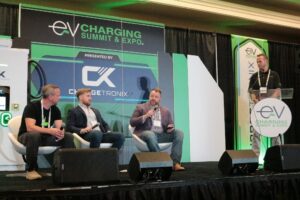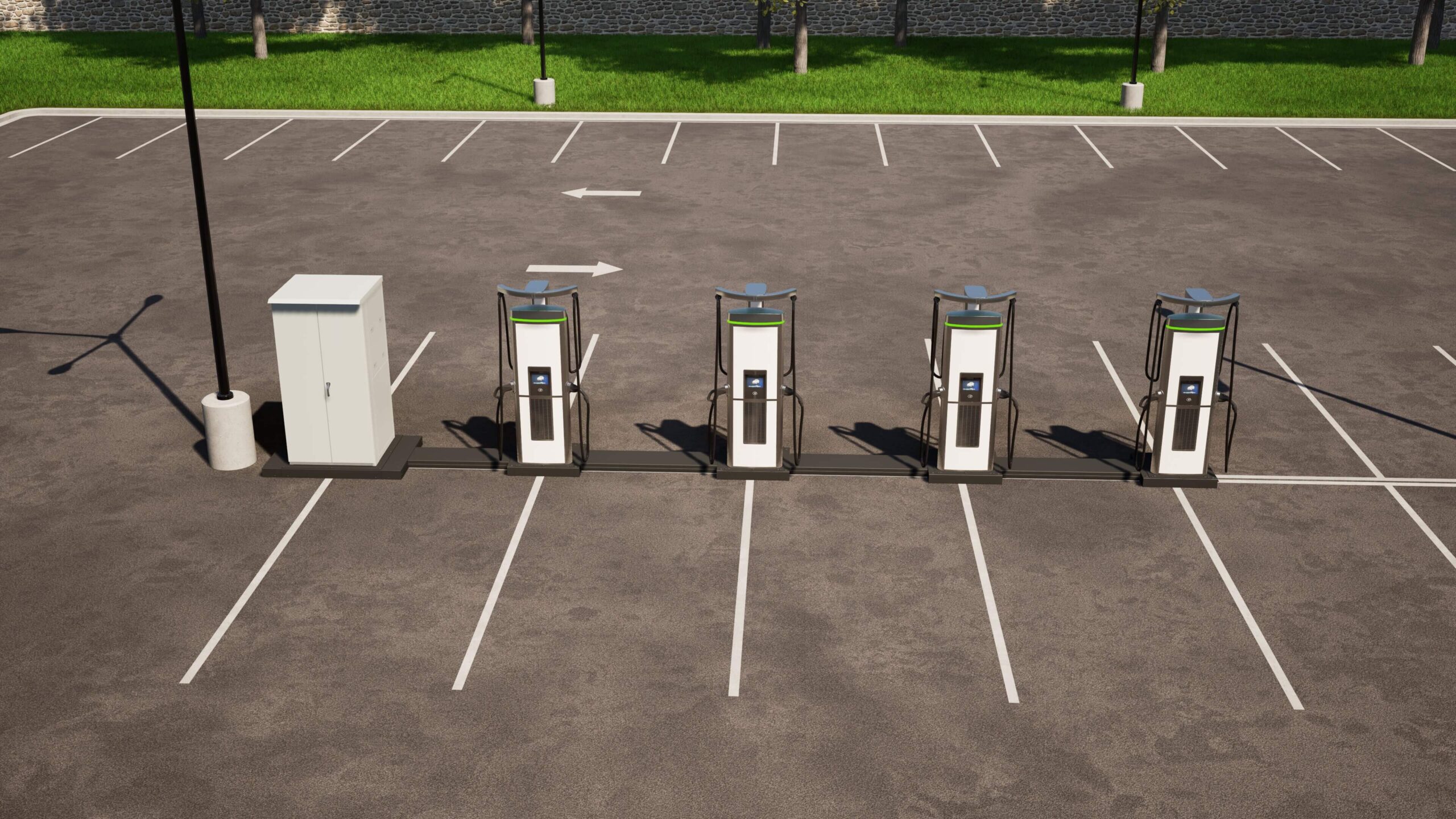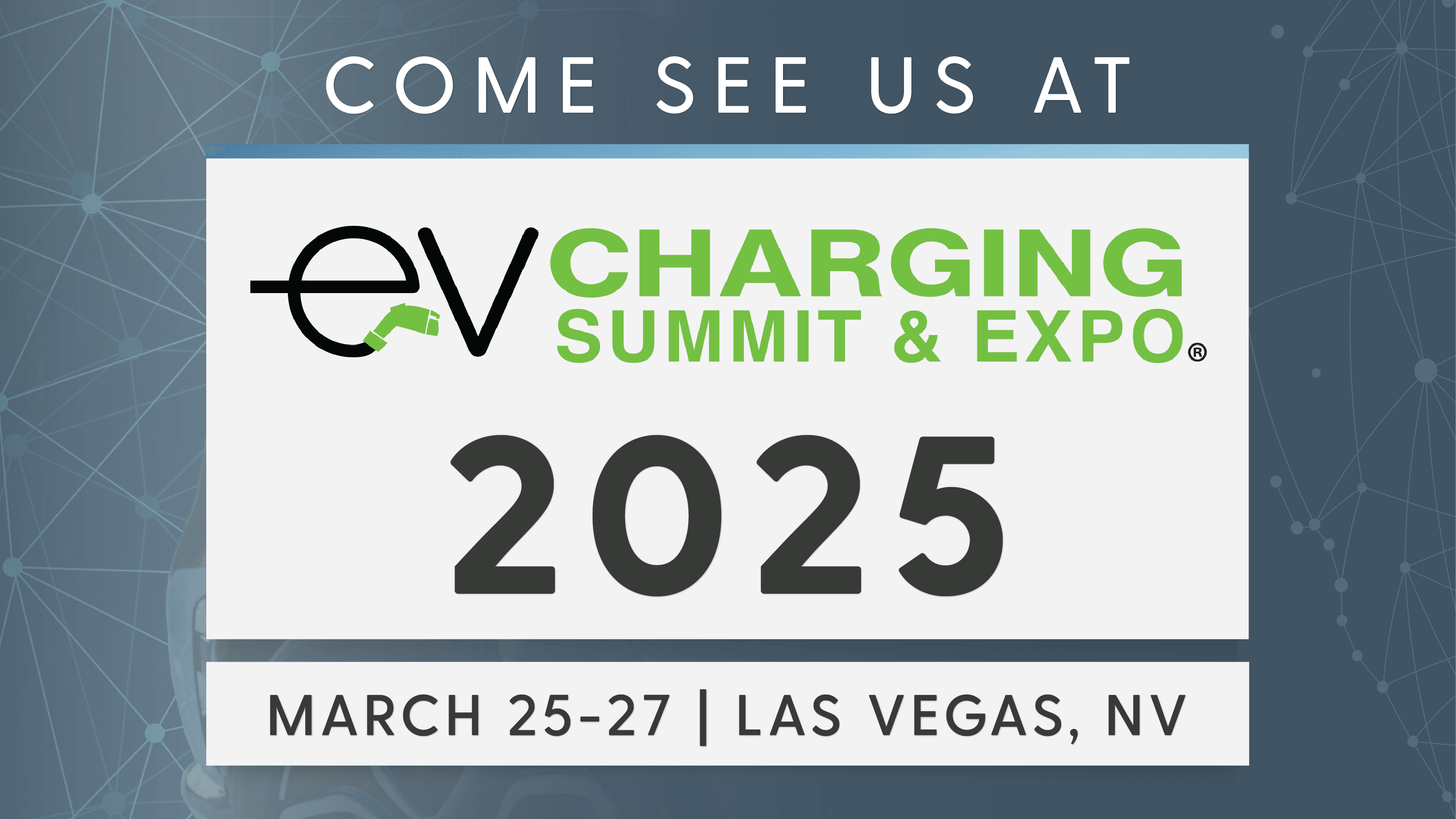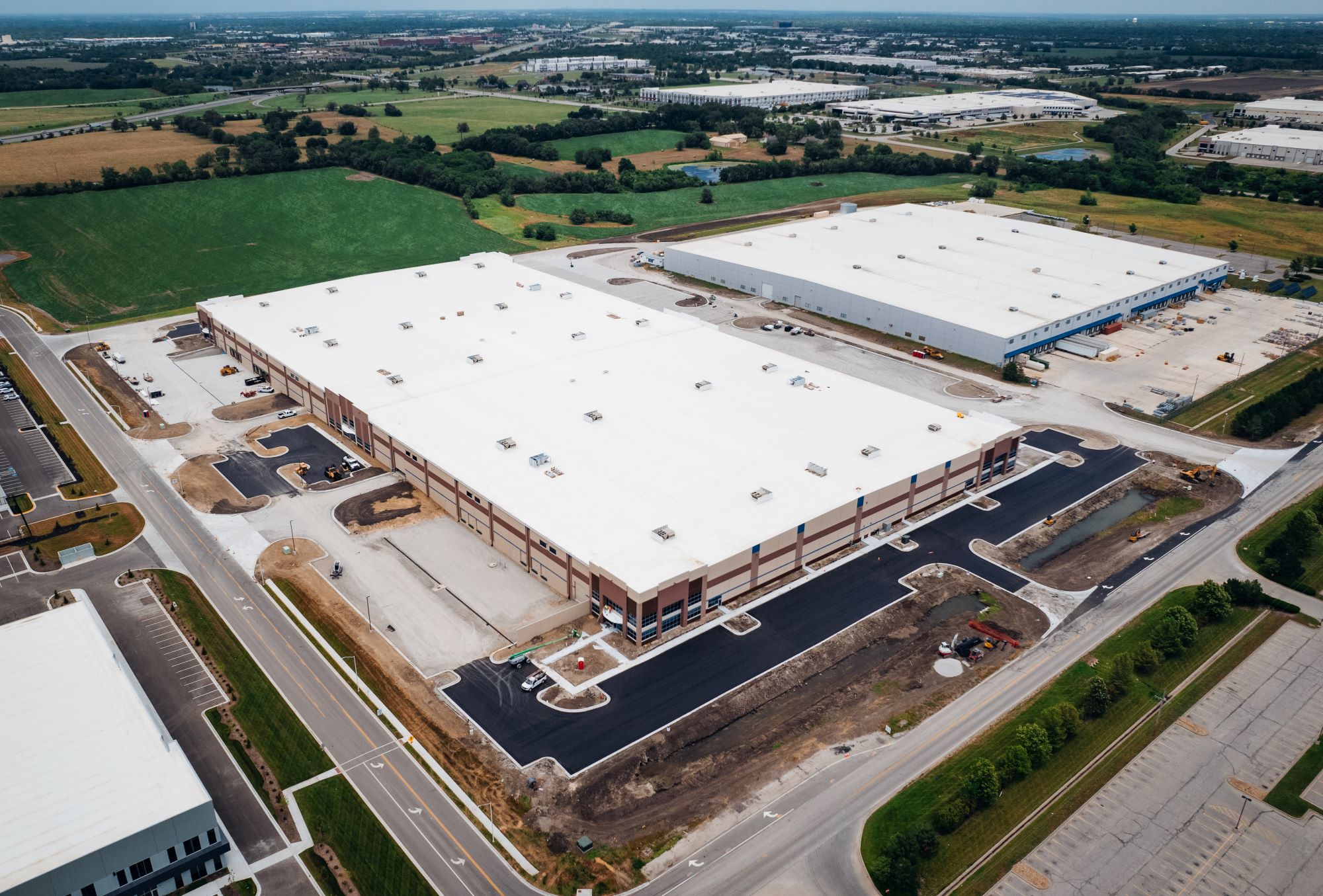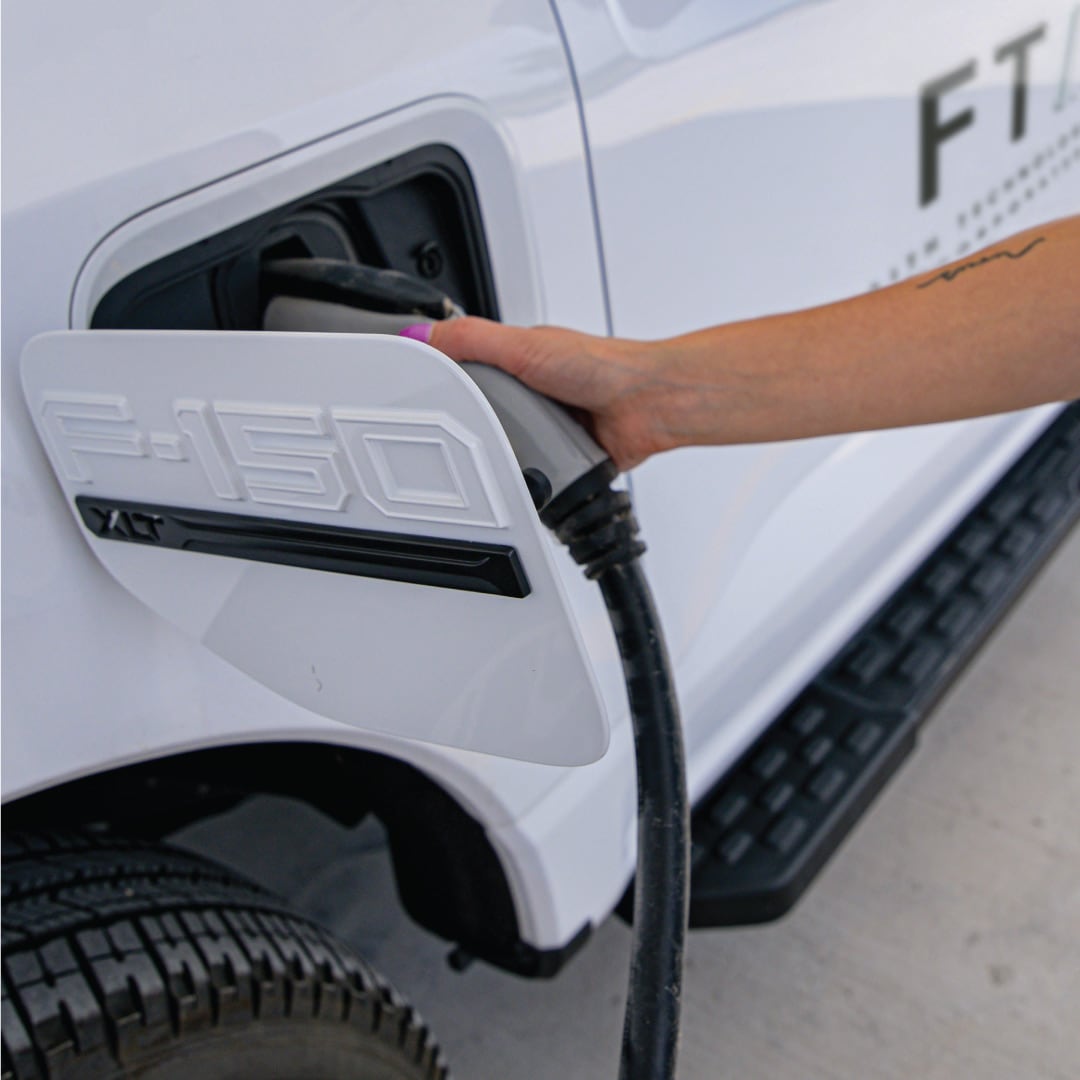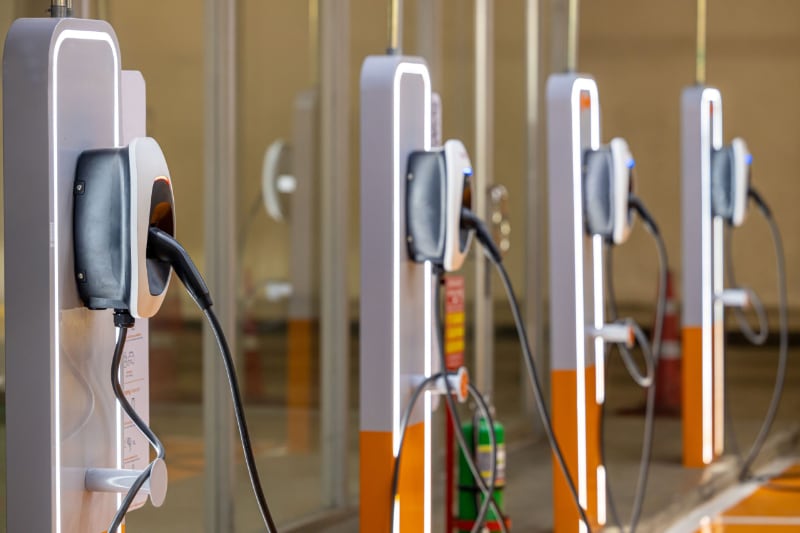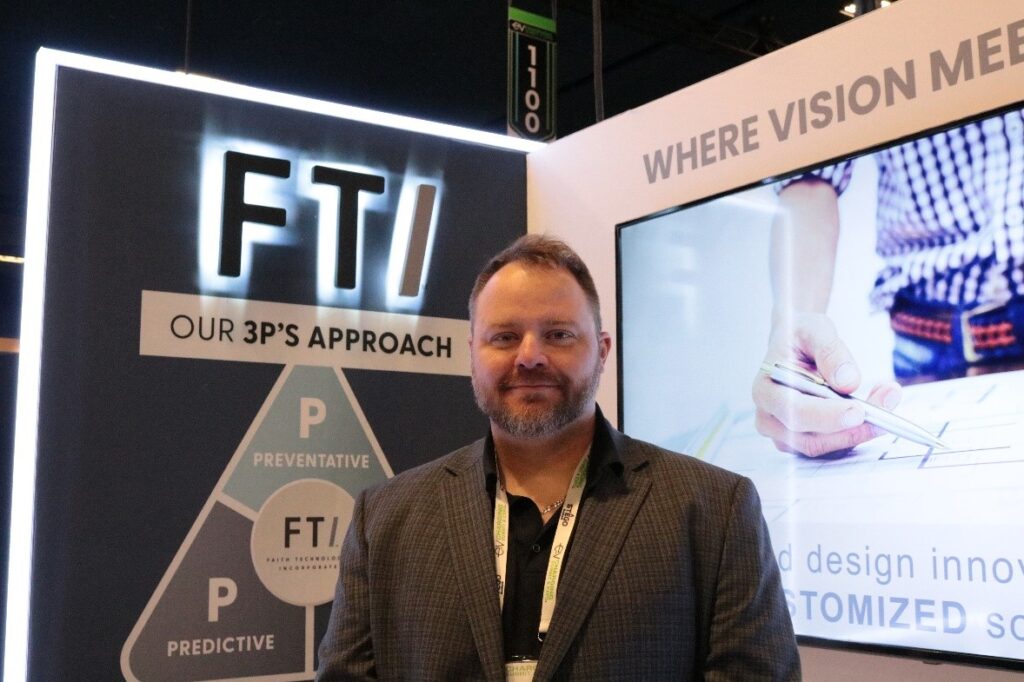
The March 25-27 EV Charging Summit & Expo ─ North America’s largest infrastructure event for transportation electrification ─ was exciting, educational and eye-opening.
At the same time, it often felt like attendees had more questions about EV charging than answers. I did my share of exploring and questioning, but I also provided some answers, too, especially during my panel discussion on finding the right service plan for EV charging infrastructure.
The installation of EV charging infrastructure is incredibly important, however successful long-term ownership requires a comprehensive service plan that includes proper management and preventative/reactive maintenance. It’s all about optimizing uptime and efficiency and creating seamless operations to maximize EV chargers’ performance and longevity. After all, every service interaction is a “must win/can’t fail” moment that can build (or damage) trust with EV drivers and fleet owners/operators.
In this article, I’m sharing highlights from the most memorable and insightful conversations I personally enjoyed at the summit, from design solutions to site selection to product-specific issues. Some were addressed during my panel discussion; others happened on the floor while meeting end-users and industry professionals. Yet, all are important to consider when developing EV charging infrastructure service plans.
The complexity of EV charging infrastructure beyond the point of sale ─ including the importance of service agreements ─ was addressed during the “Everything You Need to Know About Finding the Right Service Plan For Your EV Chargers” panel discussion that I participated in at the 2025 EV Charging Summit & Expo.
Q: “What can I do to maximize EV charging station uptime?”
A: This was the most asked question of the summit. Adding to “range anxiety” that EV drivers already feel, they also have trust issues when it comes to charging stations. Of course, there are “good/better/best” approaches to EV charging services, yet here are several best practices to help ensure uptime:
- Preventative maintenance that follows manufacturer recommendations.
- Predictive maintenance that uses data analysis to predict failures.
- Prescriptive maintenance based on analysis and machine learning spurs corrective actions.
- The right Network Operations Center (NOC) is the hub of these three actions. It monitors charging station performance in real-time to allow for quick responses to issues.
Q: “EV charger dependability is a concern. What steps can I take to ensure my EV chargers remain reliable?”
A: With many new players in the EV charging space, tackling reliability concerns requires a multi-level approach. Here’s what I recommend to keep your EV charging infrastructure running smoothly for years to come:
- Choose a trusted service partner.
- Create and implement a comprehensive maintenance plan.
- Implement regular visual inspections.
- Use quality parts and components.
- Conduct ongoing training and support for technicians and support staff.
Q: “What monitoring methods should I use to detect and address EV charging infrastructure issues promptly?”
A: Mentioned earlier, a NOC continuously monitors the performance of charging stations and detects issues as they occur, 24/7/365. Remote diagnostics troubleshoot and resolve issues without onsite visits 98% of the time. Lastly, automated alerts notify of performance issues, enabling quick response and resolution.
Q: “How does the right service plan reduce my Total Cost of Ownership (TCO)?”
A: Efficient and reliable charger operation over their lifespan is key. With the proper service/maintenance strategy, potential issues are identified and addressed before they lead to costly repairs or downtime. This extends equipment life, minimizes operational disruptions and reduces the overall costs of operating EV chargers.
Q: “What is the #1 fail issue with EV charging infrastructure?”
A: Remember the EV driver anxiety mentioned earlier? Well, here’s why: 1 in 5 public EV charging attempts ends in failure (according to the J.D. Power U.S. Electric Vehicle Experience Public Charging StudySM).
Network connectivity is the most common issue. Authentication fails because charging stations are unable to connect to the network, often due to poor cellular service at the chargers’ location. Unreliable cellular networks result in notifications that a charger is out of service, cannot accept payment or is damaged.
Being able to restore EV charging infrastructure quickly is vital, so having a solid NOC and service strategy in place is critical.
Q: “For EV charging infrastructure issues that require onsite work, what is the average amount of time from alert to arrival? What is total dispatch time and completion time?”
A: While most service level agreements (SLAs) specify less than 24 hours, response time can be as quick as 4 hours, with top-end service providers arriving within 1 hour of alert. Of course, serious issues ─ when parts need to be ordered, or the issue requires specific expertise ─ response times rise significantly.
Under 1-hour onsite troubleshooting could involve software glitches or performing a reset. However, a world-class NOC can handle most issues remotely, fixing issues nearly instantly and minimizing the number of physical dispatches.
Q: “How do third-party validation services ensure the reliability, safety and compliance of EV charging stations?”
A: Of course, everyone wants smooth EV charger installation and operation. Yet, just as important, is long-term operational efficiency and customer satisfaction. Commissioning partners provide expertise, mitigate risks, optimize performance and build trust. Here are the key aspects of third-party validation services:
- Compliance verification per manufacturer specifications.
- Quality assurance and performance testing.
- Independent reporting, including documentation for insurance purposes.
- Troubleshooting to identify potential issues.
- Data monitoring services to remotely track performance.
Yes, FTI is a valued commissioning partner, bringing invaluable expertise and experience, mitigating risk and optimizing ROI.
FTI’s booth at the 2025 EV Charging Summit & Expo featured the new Excellerate® eSkid™ among other product offerings.
FTI’s Excellerate eSkid is a configurable, ready-to-install EV charging product designed to transform the deployment of EV charging infrastructure for passenger, commercial and fleet applications. Pre-assembled for easy above-ground cable routing, minimal site disruption and simple relocation, it is a quick, flexible and cost-effective solution.
FTI’s National Solution Services (NS2) offers comprehensive, end-to-end EV charging service solutions to ensure the efficient and reliable operation of EV charging infrastructure. Skilled maintenance and support experts maintain equipment over its entire lifecycle. FTI is ready to be your reliable, single-source partner for EV charging infrastructure.
For more information on FTI’s Excellerate eSkid or our other eMobility solutions, contact us today.
If you enjoyed this blog article, please subscribe to stay up to date on the latest industry news from our experts at FTI.



